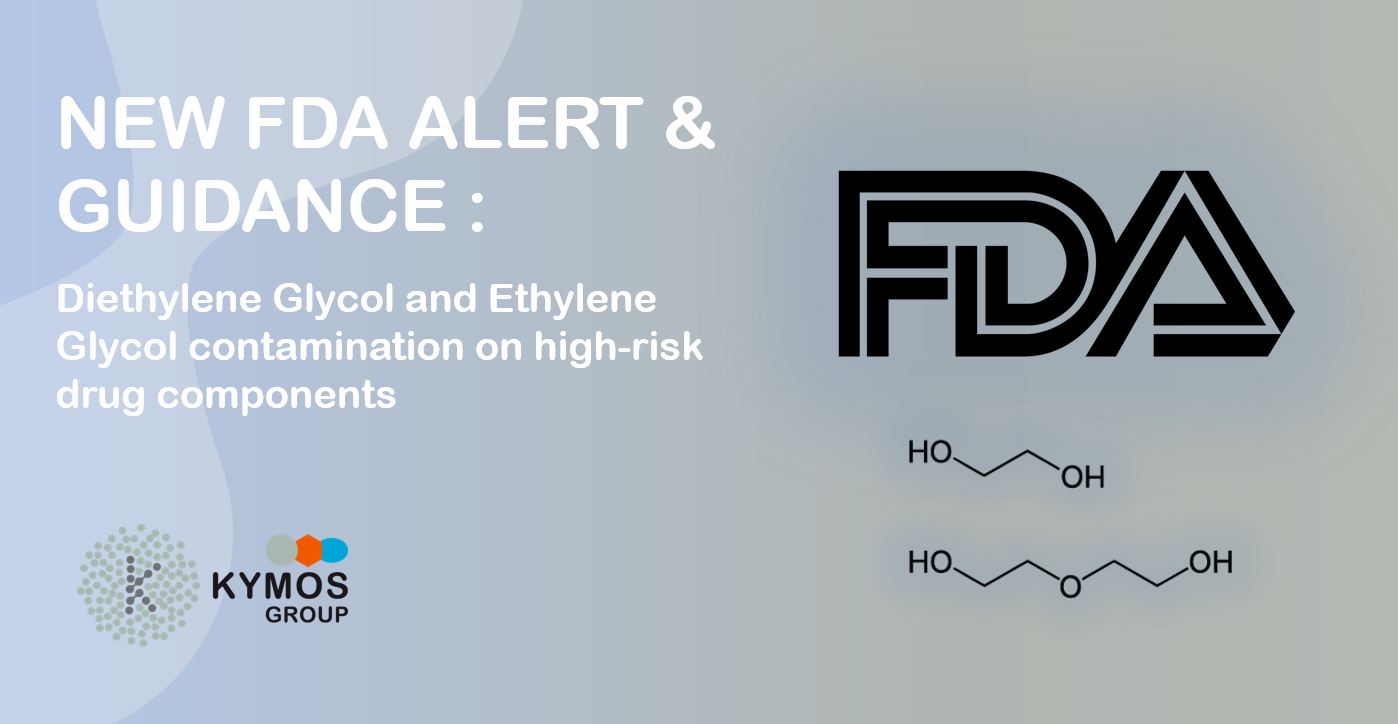
Following several global incidents involving contaminated drug products specifically designed for children, the U.S. Food and Drug Administration (FDA) released a guidance document to address the potential danger of diethylene glycol (DEG) and ethylene glycol (EG) contamination in different pharmaceutical components. These incidents occurred across seven countries between 2022 and 2023 and have raised the necessity to assess this situation.
The guidance from the FDA replaces its last 2007 document and alerts the industry that in addition to glycerin, there are other components at a high risk of contamination with DEG and EG, including but not limited to propylene glycol (PEG), maltitol solution, hydrogenated starch hydrolysate and sorbitol solution.
Kymos’ expertise in Glycerin and Propylene Glycol analysis
At Kymos, we have extensive experience in analyzing DEG and EG contaminants in glycerin and propylene glycol. These analyses are performed by expert teams using industry-standard techniques such as Gas Chromatography with Flame Ionization Detection (GC/FID) or High-Performance Liquid Chromatography with Refractive Index Detection (HPLC/RID). Our analytical methods align with the requirements outlined in the USP, European Pharmacopeia, and Japanese Pharmacopeia monographs, as well as customer in-house methods.
Implementation of contaminant testing for other excipients
While our current focus has been on Glycerin and PEG, Kymos Group is well-prepared to implement and validate testing methods to determine these contaminants in other drug components as necessary. The guidance from the FDA underlines the importance of preventing the use of other potentially contaminated components such as maltitol solution, hydrogenated starch hydrolysate, and sorbitol solution.
As an analytical testing laboratory, Kymos Group understands the significance of adapting to evolving industry requirements and will readily expand its testing capabilities to include additional excipients as needed.
Ensuring compliance and preventing consumer poisonings
Compliance with regulatory requirements is crucial for pharmaceutical manufacturers, repackers, suppliers of high-risk drug components, and compounders. Kymos Group recognizes the importance of these requirements in preventing consumer poisonings and is committed to supporting its clients and partners in adhering to current good manufacturing practices (CGMP).
By leveraging our expertise in analytical testing and quality assurance, we can assist in the prevention of contamination incidents and subsequent harm to patients.
Conclusions on Diethylene glycol and Ethylene glycol as contaminants (DEG and EG contamination)
This FDA’s recent guidance on testing high-risk drug components for DEG and EG contamination has prompted the need for heightened vigilance among the industry. Kymos Group, being an analytical CRO, possesses the necessary expertise, equipment, and methodologies to assist pharmaceutical manufacturers, outsourcing facilities, and compounding pharmacies in meeting these testing requirements.
With a demonstrated track record in analyzing Glycerin and PEG, Kymos Group is well-equipped to expand its capabilities to encompass other high-risk drug components, as and when required. By working together, we can ensure the safety and integrity of drug products and protect the health of patients worldwide.
If you need assistance with any of your projects, please do contact us.

